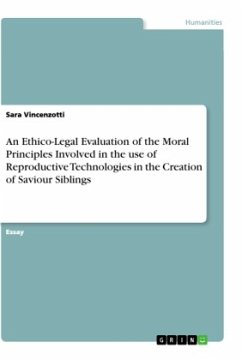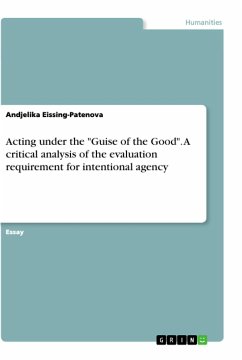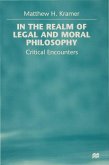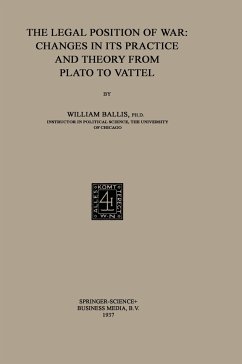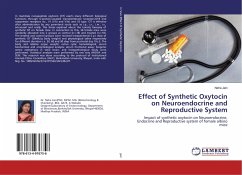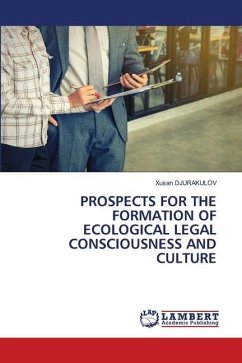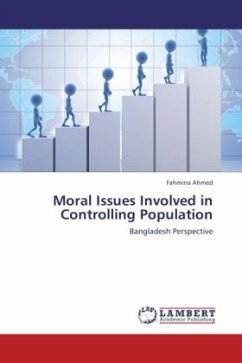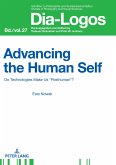Essay from the year 2020 in the subject Philosophy - Practical (Ethics, Aesthetics, Culture, Nature, Right, ...), University of Manchester, language: English, abstract: This essay will evaluate the moral principles which are engaged in the creation of compatible sibling donors specifically for providing treatment to existing children. I will explain why using reproductive technology as a means to this end has no ethical standing. In order to achieve this, I will use deontological moral theories to defend the medico-legal principle of personal autonomy, and to rebut that of procreative autonomy. Compatible sibling donors, hereafter noted as 'saviour siblings', not only lack legal definition, but also cause a deep divide between members of Parliament and the Courts.This is because the concept of them causes a struggle between two substantial principles: procreative autonomy and personal autonomy. I will argue throughout this essay that while there is no doubt that the creation of saviour siblings can bring about a positive end result by helping existing sick children, this utilitarian argument cannot trump the serious ethical issues which simultaneously arise.
Hinweis: Dieser Artikel kann nur an eine deutsche Lieferadresse ausgeliefert werden.
Hinweis: Dieser Artikel kann nur an eine deutsche Lieferadresse ausgeliefert werden.

